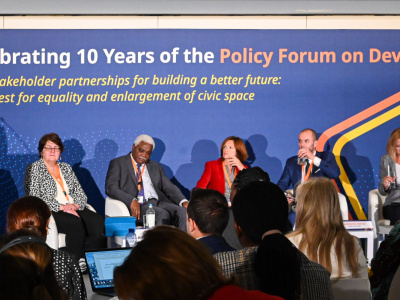
The New Organization of the Council of the European Union: Setback or Opportunity for EU Development Cooperation?
EU development cooperation is a complex programme but crucial to international development assistance.Since the Maastricht Treaty was signed, it has been based on an uneasy complementarity between Community actions and Member States' bilateral cooperation. This gives it both an intergovernmental (through the European Development Fund - about EUR 3 billion a year funded from Member States’ voluntary contributions and managed by the European Commission) and Community character (through an annual Community budget of about EUR 6 billion, managed by the Commission). It is now in the grip of radical change. Its dual character is prone to interfere with the smooth running and nature of the policy-forming mechanisms.
Politically speaking, Community development cooperation is a special case, in that it rests on several roots: a basic foundation of financial and technical cooperation dating back to the earliest days of the European Community 2, an increasingly significant political aspect - as in the Cotonou Agreement, for example - and a trade aspect given added importance by the fact that the Commission is mandated by the Member States to carry out international trade negotiations. These three roots of Community development cooperation vary in importance according to the zones and regions of the world with which the Commission maintains links of cooperation. The system seems to be moving towards a harmonization of the treatment accorded to these different zones.

